Publications
Books

Anthony, David H. and Stephanie Kuligowski. Langston Hughes: Harlem Renaissance Writer. Teachers Created Materials, Inc., 2012.
“Langston Hughes is often thought of as one of the greatest and most influential African American authors. This fascinating and inspiring biography will have readers enthralled by the life of Hughes as they learn how he became known as the voice of the Harlem Renaissance. Featuring lively images and photos and captivating facts, this book allows readers to gain insight into how the Civil Rights Movement had an effect on Hughes’ life and writing as well as important movements in the Harlem Renaissance like jazz poetry music and clubs.”
Find on amazon.com

Anthony, David H. and Stephanie Kuligowski. Freedom: Life After Slavery. Teachers Created Materials, Inc., 2011.
“In this fascinating title, readers learn all about life for African Americans in the United States after the abolition of slavery. The stunning photos and images work in conjunction with the engaging facts and sidebars to create a captivating reading experience for children as they discover the great impact that African American contributions to art, music, and literature made on the world we know today, as well as important issues like discrimination, segregation, racism, and civil rights.”
Find on amazon.com

Anthony, David H. Max Yergan: Race Man, Internationalist, Cold Warrior. New York University Press, 2006.
“In his long and fascinating life, black activist and intellectual Max Yergan (1892-1975) traveled on more ground—both literally and figuratively—than any of his impressive contemporaries, which included Adam Clayton Powell, Paul Robeson, W.E.B. Du Bois, and A. Phillip Randolph. Drawing on personal interviews and extensive archival research, David H. Anthony has written much more than a biography of this enigmatic leader. In following the winding road of Yergan’s life, Anthony offers a tour through the complex and interrelated political and institutional movements that have shaped the history of the black world from the United States to South Africa.”
Find on nyupress.org
Chapters
Hill, Robert A. and Edmond J. Keller. Trustee For The Human Community: Ralph J. Bunche, the United Nations, and the Decolonization of Africa. Ohio University Press, 2010.
Gates, Jr., Henry Louis and Evelyn Brooks Higginbotham. African American National Biography. Oxford University Press, 2008.
Lemelle, Sydney and Robin D.G. Kelley. Imagining Home: Class, Culture, and Nationalism in the African Diaspora. Verso, 1994.
Anthony, David. “South African People’s History.” History from South Africa: Alternative Visions and Perspectives. Philadelphia: Temple UP, 1991. 277-86. Print.
Journals
“Oswin Boys Bull and the Emergence of Southern African ‘Nonwhite’ YMCA Work,” Nov 2012. Journal of Anglican Studies.
Anthony, David Henry. “Max Yergan, Marxism and Mission during the Interwar Era.” Social Sciences and Missions, Vol 22, No 2, pp 257–291 (2009).
“History of Shi’a Muslims in Dar es Salaam,” The Azanian Sea: An Online Zine of Africa and the Indian Ocean World 18 Sept 2009
Anthony, D. (1991). Max Yergan in South Africa: From Evangelical Pan-Africanist to Revolutionary Socialist. African Studies Review, 34(2), 27-55. doi:10.2307/524227.
Bozzoli, Belinda. Delius, Peter. Editors. Radical History Review: History From South Africa. Volume 1990 Issue 46-47. Anthony, David. “South African People’s History.”
Cinema
In 1975 I interviewed a visiting African filmmaker, the South African Nana Mahomo. Mahomo had come through Madison to show the grim black and white documentary Last Grave in Dimbaza. He kindly talked to me about his work as part of the London based Morena film collective. He was also identified with the pan Africanist congress which sprang from the Youth League of the hoary African National Congress. Even though both groups opposed apartheid and fought against it in their respective military wings they regarded one another as rivals and competitors.
While not unaware of the contestation between them, I was naive about its extent and dangers. In the short run, however, the exchange with Mahomo focused attention on the role of film in the anti-apartheid struggle. Last Grave and Phela Ndaba: End of the Dialogue a sequel brought attention to Mahomo Morena and by extension the global liberation support movement. At the time I missed a critical element in the very name of Morena films. Not yet conversant with any South African vernacular I fell into the trap of the faux ami mistaking it for the feminine form of the Portuguese noun for brown skinned. In fact it is a Sotho noun that in Sesotho means chief and is used as an honorific in greetings. It was an indication of how this company sought to ground itself in vernacular expression. English versions of the interview appeared in Cineaste and The Black Scholar. Shortly thereafter the prolific Guy Hennebelle translated the conversation into French and submitted it to Afrique-Asie. Subsequently he published it in the pioneering anthology Cinéastes d’Afrique noire coedited with Catherine Ruelle.

“The Cinematic Arab from The Long Ships to Hidalgo,” Kinema: A Journal of History, Theory and Aesthetics of Film and Audiovisual Media 25 (Waterloo: University of Waterloo, Canada) Spring 2006, pp. 85-92.
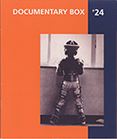
“African Film Festivals in Focus,” Journal of the Yamagata International Documentary Film Festival, Mar 20, 2005. PDF in Japanese, English.
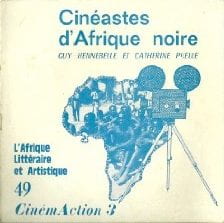
Contributor, Cinéastes d’Afrique Noire: L’Afrique Littéraire et Artistique 49 CiinemAction 3 Guy Hennebelle et Catherine Ruelle, ed. (1978).
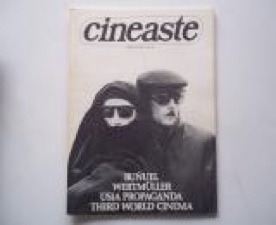
Mahomo, Nana: “Clandestine Filming in South Africa,” by David H, Anthony III, 7:3, 18-19 & 50.
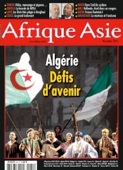
“Nana Mahomo, Un Sud Africain Contre l’Apartheid,” [tr. Guy Hennebelle] Afrique-Asie November 1976.
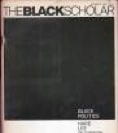
The Black Scholar Interviews: Mahomo. 7 May 1976. David Henry Anthony.
Reference Entries
in the African American National Biography:
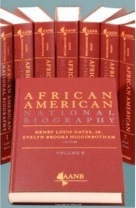
Entriesal-Siddiq, Abu Bakr
Dean, Harry Foster
Hunter, Charles Norfleet
Russell, George Allen
Teamoh, George
Webster, Milton Price
Yergan, Max
Younge, Samuel Leamon
Reviews
Anthony, David H., “Revisiting Zanzibar’s Revolution,” Cultural Dynamics 28:3 Nov 1, 2016, 326-331.
Anthony, David. Review: Thelonious Monk: The Life and Times of an American Original by Robin D.G. Kelley. Spectrum: A Journal on Black Men. Vol. 4 No. 2 (Spring 2016).
Book Review: The Staircase of a Patron: Sierra Leone and The United Brethren in Christ, Jeremy H. Smith. Journal of Religion in Africa. 46. Issue 2-3. (27 Feb. 2016).
Anthony, David. Fred Ho’s Wicked Theory and Naked Practice. Kalfou: A Journal of Comparative and Relational Ethnic Studies. Vol 3 No. 1 (2016).
Anthony, David. The Spirit and the Shotgun: Armed Resistance and the Struggle for Civil Rights, by Simon Wendt. Kalfou: A Journal of Comparative and Relational Ethnic Studies. Vol 2 No 2 (2015).
Anthony, David H., III. “Getting Pictures Right: Context and Interpretation.” Social Sciences and Missions, Vol 23, no 2, pp 307–308 (2010).
Anthony David H., III. “Making Men in Ghana.” Social Sciences and Missions, Vol 23, no 2, pp 307–308 (2010).
Proudly We Can Be Africans: Black Americans and Africa, 1935-1961 by James Meriwether. Review by: David. H. Anthony, III. African Affairs Vol. 102, No. 407 (Apr. 2003), pp. 356-358.
Anthony, David H., The World That Was Ours: The Story of the Rivonia Trial by Hilda Bernstein. The International Journal of African Historical Studies 25/1 Africana Publishing Company (1992).
Conferences
Workshops & Events
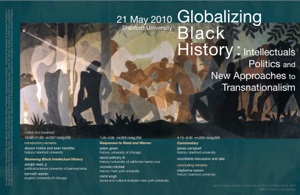
Globalizing Black History: Intellectuals, Politics and New Approaches to Transnationalism
Stanford University • May 21, 2010
This workshop offered an extended debate of a new collection of essays edited by Adolph Reed (University of Pennsylvania) and Kenneth Warren (University of Chicago). In addition to presentations by Reed and Warren, a number of major scholars in the field of African-American history participated: Adam Green (University of Chicago), David Anthony III (UC Santa Cruz), Michele Mitchell (New York University), Nikhil Singh (New York University). Opening and closing remarks and commentary were provided by Stanford History faculty: Sean Hanretta, Allyson Hobbs, James Campbell and Clayborne Carson. Co-sponsored by Transnational, International, and Global History Program, Department of History, School of Humanities & Sciences, Program in African and African American Studies, Division of International, Comparative and Area Studies. Visit conference page
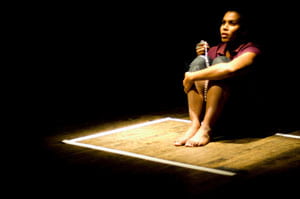
Stages of Reconciliation: Miracle in Rwanda
Stanford University • November 1-4, 2007
Following the success of Stanford Summer Theater’s 2007 Africa on Stage festival, the Department of Drama, Continuing Studies Program, Center for African Studies, and Stanford Institute for Creativity and the Arts present Miracle in Rwanda. With its uplifting message of forgiveness and grace, Miracle in Rwanda tells the inspiring story of Rwanda genocide survivor Immaculée Ilibagiza, a real-life messenger of hope. Fresh from sold-out performances in New York and the Edinburgh Fringe Festival, Miracle in Rwanda plays at Stanford for four nights only. According to The Village Voice, “Sword’s one-woman performance makes riveting theater.” The British Theatre Guide calls the intense 75-minute play “a truly compelling story and a reminder of the power and purpose of theatre.” An inspiring account of courage, luck, perseverance, and faith, Miracle in Rwanda asks audiences to imagine the unimaginable, and then follow one person’s remarkable journey from incomprehension and hatred to compassion and forgiveness. Visit conference page
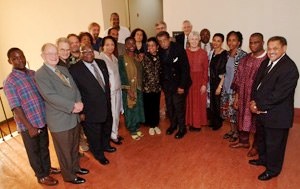
Ralph J. Bunche Conference
UCLA Globalization Research Center–Africa • June 2004
In conjunction with UCLA’s commemoration of the centenary of Ralph Bunche’s birth, in June 2004 an international conference was hosted at UCLA with the Marcus Garvey and UNIA Papers Project, and the James S. Coleman African Studies Center. The focus was to examine the contribution and impact of Bunche’s role in the planning of the international trusteeship system that paved the way for the decolonization of Africa and Asia following WWII. David Anthony was a conference participant, and his essay was published in the subsequent collection of Bunche scholarship, Trustee for the Human Community: Ralph J. Bunche, the United Nations, and the Decolonization of Africa (2010).
Papers
“Ralph Bunche and the Dawn of Africanist Research” for Roundtable I: Ralph Bunche and the Decolonization of African Studies, conference on “‘Trustee for the Human Community’: Ralph J. Bunche and the Decolonization of Africa,” University of California, Los Angeles, June 4 2004.
“Towards a History of ‘Black Work’ in the South African Y.M.C.A.,” panel on Modernity’s Histories: South Africa, Russia, the U.S.; Modernities Histories in Global Context, Global Social Movements in World Historical Perspective: A Conference of the World History Workshop, A University of California Multi-Campus Research Group, University of California, Santa Cruz, April 26-27, 2003.
“The Isle of Cloves in the Gaze of the World: The Fifth Zanzibar International Film Festival of the Dhow Countries,” Cultural Studies, Oakes College, University of California, Santa Cruz, April 23, 2003.
“Haven of Peace: A Cultural History of Dar es Salaam, 1866-1939,” panel on early colonial Dar es Salaam “Dar es Salaam in the 20th Century: Urbanisation and social change in an emerging East African metropolis,” a one-day conference organized by the British Institute in Eastern Africa and the Department of History, University of Dar es Salaam, Tanzania, July 1, 2002.
“A Puzzle Wrapped in an Enigma: The Manicheism of Max Yergan and the Perils of Pan-African Biography,” 2001-02 Colloquium Series, Civil Society, Statelessness and Economic Stability, Council on African Studies, Center for International and Area Studies, Henry R. Luce Hall, Yale University, April 10, 2002.
“Haven of Peace: A Cultural History of Dar es Salaam, 1866-1939,” Conference on Cultural Exchange and Transformation in the Indian Ocean World, Fowler Museum of Cultural History, University of California, Los Angeles, April 5-6, 2002.
“Imperialism and Tricontinental Counter-Colonial Critiques: Paul Robeson, Max Yergan, The Council on African Affairs and the Intelligence Community, 1937-1955,” Conference, Paul Robeson and Africa: Struggle for an Authentic Vision of Africa in the Diaspora, Rutgers University, Livingstone College Student Center, April 23, 1999.
“Culture and Society in Colonial Dar es Salaam,” Panel, Geopolitics, Modernism, Regionality and Resistance,” Modernities Histories in Global Context, University of California, Irvine, Saturday, March 8 1998.
“The Conservatism of Max Yergan,” Panel, “Black Political Ideologies: Historical Perspectives,” 22nd Meeting of Social Science History Association, The Hyatt on Capitol Hill, Washington, D.C., October 16, 1997.
“African Minority Groups in Host Countries: Different Boats and Airplanes,” 39th Annual Meeting, African Studies Association, Hyatt Embarcadero Center, San Francisco, November 23, 1996.
“Max Yergan and the Rockefeller Foundation,” Conference on Understanding Contemporary Africa, 20th Annual Meeting, New York African Studies Association (NYASA), Panel considering “Philanthropies as Agents of Change in Africa.” Rockefeller Archive Center, Pocantico Hills, North Tarrytown, New York, April 12, 1996.
“Max Yergan in South Africa,” Panel on Afro-Americans and Africa, African Studies Association Annual Meeting, Atlanta, November 5, 1989.
“African Labor in Dar es Salaam During the Colonial Period,” Annual Labor History Conference, Board of Studies in History, University of California, Santa Cruz, April 22, 1989.
“Encounters in Africa,” Second Annual World History Symposium, “First Encounters: Europe and the World in the Sixteenth Century,” sponsored jointly by the History Department, San Diego State University and the National Park Service, the Cabrillo National Monument, San Diego, California, April 10, 1989.
Speaking & Advising
Panel: “The Surveillance of Max Yergan,” “Law Suits, Scandals and Atrocities: Citizenship and Access to Information,” Organization of American Historians Annual Meeting, San Francisco. 1996
Chair, Panel on Surveillance and Terror: The Repression of Organized Labor [with Frank Wilkinson, Dick Criley, Al Stein, and Tony Platt]. 20th Annual Southwest Labor Studies Conference, Oakes College 104, April 29, 1994.
Panel: Co-discussant on “Freedom Struggles in the American South and South Africa,” critiquing papers by George Frederickson, Penny von Eschen. 87th Annual Meeting, Organization of American Historians, Hilton Towers, Atlanta, Georgia, April 14-17, 1994.
Planner and Facilitator of African component, and Lecturer, “Enriching the Agenda of American Culture,” for the National Faculty Summer Institute, for Robeson County Public School Teachers, UNCW, Wilmington, N.C. (New Hanover, County, N.C.) June 14-25, 1993.
Panel: ”The South African Odyssey of Max Yergan,” panel on African-Americans and the South African Experience, 34th Annual Meeting of the African Studies Association, St. Louis, Missouri, November 1991.
Planner and facilitator of African component, and Lecturer, “Tradition and Modernity,” for the National Faculty Summer Institute, Central Michigan College, for selected Michigan public schools, August, 1991.
Presenter of three lectures about “Africa and its Encounter with Europe;” also planner and facilitator of sub-saharan module at De Witt Wallace National Institute on World History on theme: Global Connections in the Era of Columbus.” Woodrow Wilson National Fellowship Foundation, The Art Museum, Princeton University, July 1991.
Lectures, “Africa in Empire and Empires in Africa,” “Discovery and Encounter: Europe, Africa, the New World.” Part of five-year TEC Humanities Institute, “Inhabiting Other Lives,” for Dade County Public Schools. Center for Multilingual and Multicultural Studies, Florida International University, Miami, July 1991.
Advisor, Third Annual Inter-University National Model O.A.U., Howard University, Spring 1982.
Advisor, SWAPO delegation (Namibia), Convener and Chair, African Liberation Commission, Second Annual Inter-University Model O.A.U., Georgetown University, March-April 1981.
“The Evangelical Pan-Africanism of Max Yergan,” address to Regional Meeting, Afro-American Caucus, American Academy of Religion, College of the Holy Cross, Worcester, Massachusetts, December 1979.
Co-convenor, Workshop on “Using Roots and Other Approaches in Teaching About and Learning From the African and Afro-American Experiences,” Regional Conference on the Teaching of History, American Historical Association, Purdue University, West Lafayette, Indiana, December 1-2, 1978.
Panel: ”Dar es Salaam in the Nineteenth Century,” Panel on Early Nineteenth Century Cities in North America and Africa, American Historical Association Annual Meeting, San Francisco, California, December 1978.